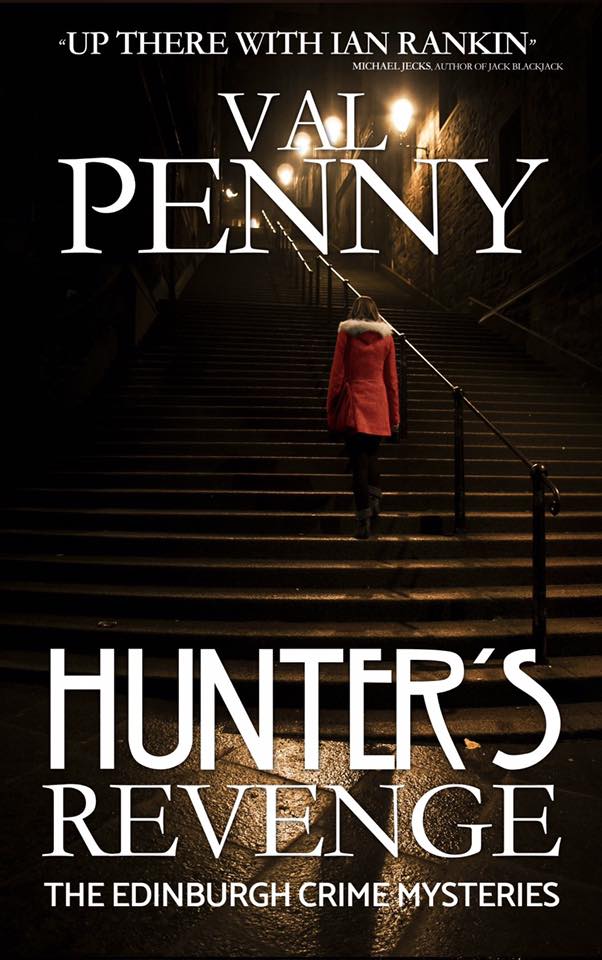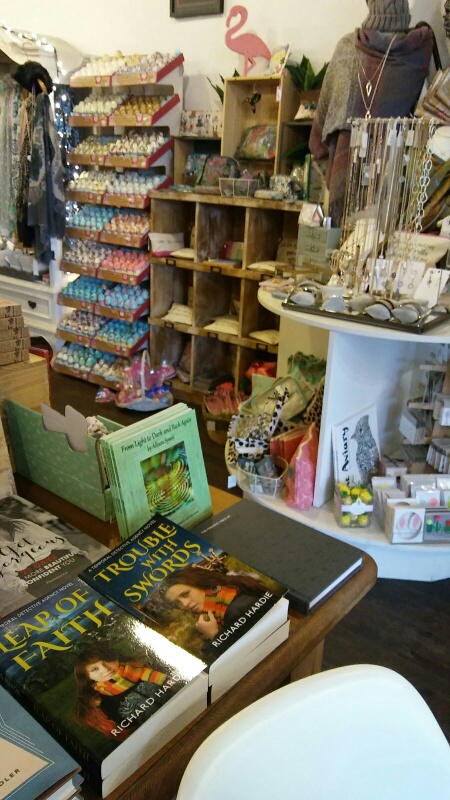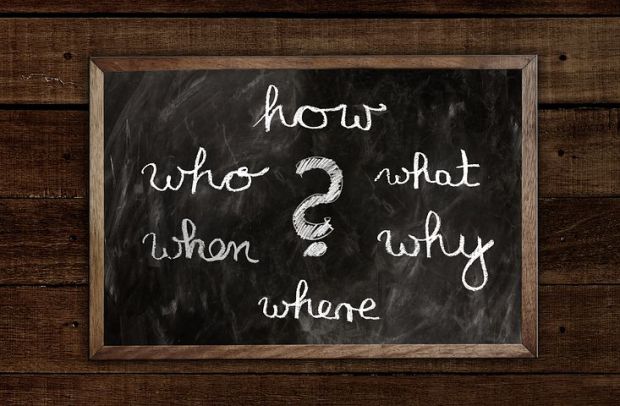Introducing Val Penny…
One of the lovely things about writing is getting to meet other writers at conferences and so on. You can share tales of woe, exciting publication news etc and know the other person will appreciate where you are coming from. Sometimes you can find out about markets and competitions you hadn’t heard of, but above all you have friends – and social media makes it so much easier to keep in touch.
I was delighted to meet crime writer, Val Penny, at the Swanwick Writers’ Summer School a couple of years back. I’m looking forward to catching up with her again there this year. I am very pleased to have Val join me on my blog tonight and she shares an excerpt from her forthcoming book Hunter’s Revenge, the second in the Hunter Wilson/Edinburgh Mysteries series. (Good news for those of you who like crime writing, as I do, is there will be more to come).
Over to you, Val… (and I want to know the moment you DO achieve your childhood dream of owning a candy store. I shall be right over….!).
The Author Bio for Hunter’s Revenge
Val Penny is an American author living in SW Scotland. She has two adult daughters of whom she is justly proud and lives with her husband and two cats. She has a Law degree from Edinburgh University and her MSc from Napier University. She has had many jobs including hairdresser, waitress, lawyer, banker, azalea farmer and lecturer. However she has not yet achieved either of her childhood dreams of being a ballerina or owning a candy store. Until those dreams come true, she has turned her hand to writing poetry, short stories and novels. Her crime novels, Hunter’s Chase and Hunter’s Revenge are set in Edinburgh, Scotland, published by Crooked Cat Books.

And Val has very kindly shared the extract from her forthcoming book. Enjoy! I know I did!
Hunter’s Revenge
Prologue
East Germany, January 1968
The last thing Georg did on his eighteenth birthday was kill a man.
He really hadn’t meant to kill the Stasi officer in front of him, but it was him or Georg – and Georg did not want to die. It was the first time he’d seen a corpse. The streets were slick with ice. The man lost his balance and cracked his head on the pavement. Georg stared down at the body: there was blood and brains all over the pavement. He looked into the officer’s eyes. They stared blindly to heaven, but Georg knew there wasn’t a Stasi officer on earth who was going there. He looked away from death and towards his friends in horror, but when they saw what had happened, they scattered. Georg picked up the officer’s gun and began to run.
More Stasi officers appeared as the boys fled.
Georg was out of breath when he got home.
“What’s the rush, son?” his father asked.
“Shit, Dad! It’s bad.”
“You’re drunk! No language in this house, boy,” said his grandmother.
“Dad, the boys and me were leaving the bar to come home and we saw a Stasi officer”
“So?”
“We were laughing and having fun.”
“And?”
“For a laugh I knocked his hat off.”
“Idiot! You know Stasi have no sense of humour. Ever. So what next?”
“He pulled his gun and told us to stand silently against the wall.”
“And you apologised and complied, I hope.”
“I panicked and punched him. He slipped on the ice and fell over. He hit his head on the ground, and when I checked him, he wasn’t breathing. He was dead. I just took his gun and ran.”
The silence in the room was deafening.
“You did what? You fucking idiot! Did you really punch a Stasi officer? Are you mad? You know we don’t even have to openly engage in resistance to draw the attention of the Stasi and incur its retribution. Just failing to conform with mainstream society can be enough. Shit! I sired a fool.” Georg’s father’s red face reflected his rage.
“And now you are here,” his grandmother added. “You ran home, leading them straight to us. We will all die now. Thank you.”
“What is all the noise?” Georg’s mother came through from the kitchen, drying her hands on her apron. His twin sister Ingrid and younger brother Wilhelm followed her. They looked bewildered. Their father rarely raised his voice, especially not to Georg.
As his father explained the issues, Georg’s mother burst into tears.
“They will kill him,” she whispered.
“They’ll kill him?” his father shrieked “Fuck, the rest of us will be lucky if all they do is kill us too! Have you any idea the danger you have put this whole family in, you young imbecile?”
“God, that’s true!” his mother sobbed. “Georg has to leave. He must escape right away. Maybe, when they come and find him gone, they will believe we had no part of it.”
“You and I both know that is not going to happen,” his father said. “They know everybody in the town, and even if they don’t already know it was Georg, one of their informers will turn him in for reward or to save their own skin. They will soon find out where he lives.”
His wife nodded.
“Mum, where do I go?” Georg pleaded. “Dad, what will you do? I didn’t mean anything by it. I was just fooling around.”
“Then you are more of a fool than I ever thought,” his father said. “It’s a bit fucking late to worry about us. We will cope, but we must deny you and any knowledge of this atrocity. I love you always, but you must leave, son. Now. There is no choice, and you must be quick because they will be here all too soon. Make a start on your escape tonight. It’s your only hope, and ours.”
“Quick, Wilhelm, fetch him my savings and your grandfather Georg’s book,” said his grandmother. “Georg will need the money, and he can always sell the book.”
“I’ll pack a meal,” his mother said. She gathered up the family Bible, along with some bread, ham, cheese and apples.
“Don’t give him too much, it will slow him down,” said Ingrid.
“Pack everything in a rucksack. You can put it on your back, Georg, and still run,” said Wilhelm as he handed their grandmother’s meagre treasures to George.
“I am so sorry, Father. Where do I go? Where am I running to? What will happen to you?” Georg’s voice raised to a scream.
His mother held him and kissed his head, but his father grabbed his arm, pulled him from her and shook him.
“You got yourself into this; we will get you out of it. No point in worrying about us. Get out of this country. Don’t look back. Just run. Go west, go to Britain. Stay alive. Get out of this house, get out of my sight and never come back. Do you hear me, Georg?”

Wow! Plenty to get your teeth into there! Well done, Val.
Hunter’s Revenge Blurb
Hunter by name – Hunter by nature: DI Hunter Wilson will not rest until his friend’s death is revenged.
DI Hunter Wilson is called to the scene of a murder. He is shocked to find the victim is his friend and colleague, George Reinbold. Who would want to harm the quiet, old man? Why was a book worth £23,000 delivered to him that morning? Why is the security in George’s home so intense?
Hunter must investigate his friend’s past as well as the present to identify the killer and identify George’s killer. Hunter also finds a new supply of cocaine from Peru flooding HMP Edinburgh and the city. The courier leads Hunter to the criminal gang but Hunter requires the help of his nemesis, the former Chief Constable, Sir Peter Myerscough and local gangster Ian Thomson to make his case. Hunter’s perseverance and patience are put to the test time after time in this taught crime thriller.

Many thanks, Val, for sharing such an intriguing extract! I look forward to reading more!
I think one of the appeals of crime fiction is following the development of characters like Hunter Wilson over a series of books. Crime fiction reveals a lot about the human condition and I think there will always be a fascination with what makes criminals tick, what got them into crime in the first place, could anything have been done to prevent it, and so on.
It’s not a new fascination either. I’ve recently been watching a series of programmes on BBC Four about Highwaymen, Outlaws and Robbers and the old printed sheets detailing someone’s crimes (usually just before they went to the gallows) sold like the proverbial hot cakes in London. We’re talking 17th and 18th centuries here. And going further back, there is fascination now about what happened to the Princes in the Tower, but that fascination started at pretty much the moment it was known the boys were missing.
So crime writers are very much tapping into something fundamental here – the need to know why someone would act in a way at odds with what is seen to be right.
Happy writing, Val. Very much looking forward to this.

Find out more about Hunter Wilson’s story in September! Image via Pixabay










































































































































































































































































































































































































































